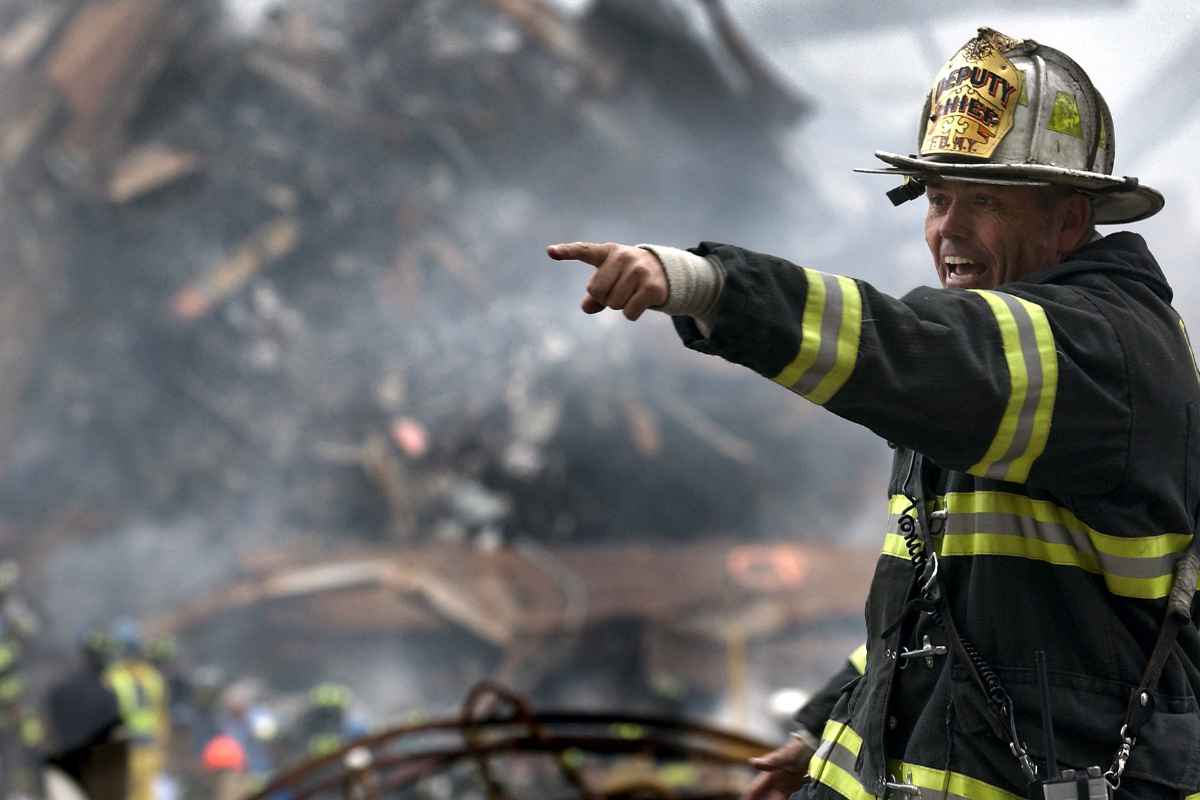By: Design for Change
Why Some First Responders Struggle With Substance Use Disorders
You are here:First responders put their lives on the line every day to save the lives of others. Although it is a noble profession, these dedicated individuals don’t get the recognition they’ve earned. In spite of their bravery, selflessness, and courage, first responders are often left alone to deal with the trauma of their jobs. As a result, the rate of first responder’s substance use is high.
 Who are first responders? They are the EMTs, police, paramedics, and firefighters who rush to our aid in an emergency. Pushing their fear aside, they are the first on the scene when someone is in danger. The job requires them to work long hours and witness scenes of death and injury that are unimaginable.
Who are first responders? They are the EMTs, police, paramedics, and firefighters who rush to our aid in an emergency. Pushing their fear aside, they are the first on the scene when someone is in danger. The job requires them to work long hours and witness scenes of death and injury that are unimaginable.
Unfortunately, the relationship between mental health issues and substance use among first responders is not uncommon. However, it is concerning that so few of them get the treatment they require.
All things considered, society cannot function effectively without first responders. For this reason, it is important that we acknowledge their sacrifices and aid those who need addiction treatment.
Reasons for First Responder’s Substance Use
First responders are subjected daily to situations that cause them stress and trauma. However, they rarely have the time or resources to create effective coping mechanisms. Some of the situations they encounter repeatedly are:
- Having to make life-or-death decisions
- Physical discomfort due to wearing heavy gear
- Being exposed to infectious diseases
- Handling hazardous materials
- Working long hours and overtime
- Anxiety of being unable to rescue or revive a person
- Performing at optimal levels all day, every day
When their emotional and physical responses to these issues are repressed, drugs and alcohol may become their method for self-medicating.
Signs of First Responder’s Substance Use
High-stress professions such as first responders can lead to physical and psychological after-effects. For instance, first responders often deal with issues such as:
- Sleeplessness
- Fatigue
- Loss of appetite
- Mood swings
- Depression
- Burnout
- PTSD
The side effects of stress or trauma are often the underlying cause of substance use disorders. Studies show that about 30% of EMS/EMT professionals suffer from depression. Furthermore, approximately 24% of police officers also struggle with depression and anxiety. Additionally, hundreds of first responders often take their own lives after a long battle with mental illness.
In view of these alarming facts, the importance of knowing the signs of first responders substance use must not be overlooked. Here are some signs to watch out for:
- Behavioral changes, aggression
- Lack of personal hygiene
- Memory problems
- Financial problems
- Alcohol or drug paraphernalia
- Health problems
- Social isolation
If these early signs of substance use begin to occur more frequently, it may be time to consider an intervention for addiction treatment.
Why Do First Responders Fail to Get Treatment?
According to research, about 85% of first responders suffer from untreated psychological problems. However, only about 30% of them received proper treatment. Furthermore, the number of first responders with SUDs often goes unreported. This suggests that many first responders are dealing with mental health disorders and substance use but have not sought treatment.
First responders fail to get treatment for many reasons. About 39% of first responders surveyed admitted they fear the consequences of reaching out for help. For instance, they worry about being treated differently on the job or appearing weak to their colleagues. They also worry about not being recognized for promotion.
While many of their fears are the result of stigma, the fact remains that these individuals are not getting the treatment they need. Consequently, if left untreated, the disorders can result in poor performance on the job and even result in the loss of someone’s life.
Treatment for First Responder’s Substance Use
At Design for Change Recovery, we understand the unique challenges first responders face daily that led them to substance misuse or inappropriate use. To help them get the high-quality treatment they require, we offer customized treatment for first responders.
As part of our full continuum of care for first responders, we provide the following evidence-based therapies:
- Detoxification
- Holistic Therapies
- Medication-Assisted Treatment
- Group and Individual Counseling
- Dual-Diagnosis Treatment
- Family Therapy
- Aftercare Services
Design for Change is a fully licensed and accredited treatment program administered by compassionate professionals. Our facility is located in beautiful Lancaster, CA, providing a comforting, secure environment where clients can relax and focus on their recovery goals.
We work in-network with many major insurance companies to help clients get affordable, exceptional treatment. If other financial options are needed, our advisors will assist clients in arranging them.
If you are a first responder or know someone who needs addiction treatment, contact us by phone, email, or online today. We will be happy to help you customize a treatment plan that is right for your needs.
Sources:
psychiatrictimes.com/ – First Responders and Mental Health: When Heroes Need Rescuing
samhsa.gov/ – First Responders: Behavioral Health Concerns, Emergency Response, and Trauma
fba.com/– Helping First Responders Fight Against Mental Health Issues


